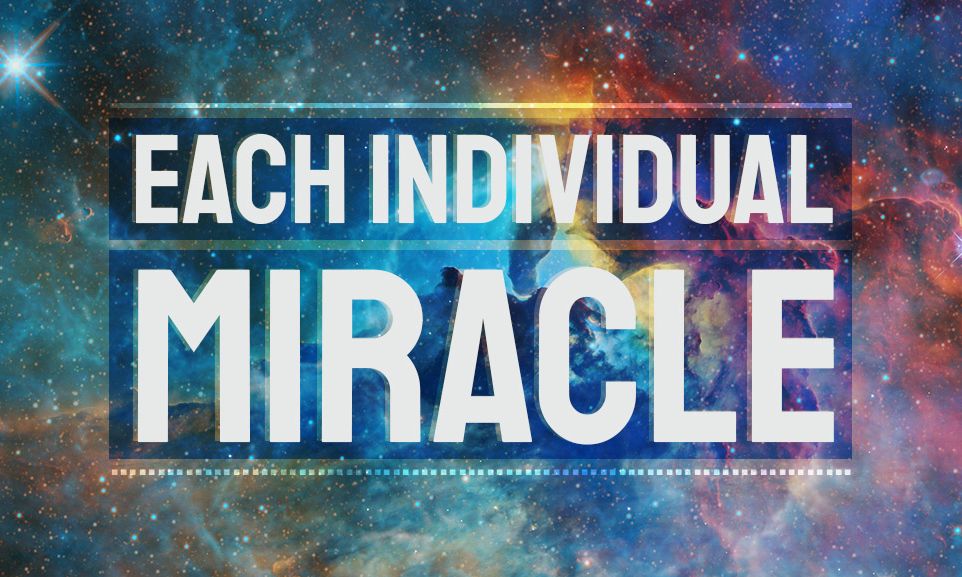
Each Individual Miracle
Every single breath, for every single blessing – we must recognize that everything we have is a MIRACLE, a gift, straight from Hashem. We can't take it for granted…

On Chanukah, we light an extra candle every night, so that on the eighth night, there are eight candles total (plus the shamash, the additional candle). But if the miracle is that oil that should have only burned for one night actually burned for eight, then why don’t we light eight candles every single night?
When we light an additional candle each night because every single day that the menorah burned was a separate, individual miracle. But what about the first day – that was natural, right? Absolutely not – the fact that there was pure oil that could be lit was a gigantic miracle in and of itself. When the Greeks defiled the Holy Temple, they systematically went and broke the seal on every single container. That they “missed” one was in and of itself a tremendous miracle worth celebrating!
However, you could still ask why there is so much focus on the miracle of that day alone. After all, the point of the entire miracle was the re-dedication of the Temple in purity, and thus we should focus more on that general miracle. The answer is that the miracle of each day (and of that one flask being intact) was so awesome, so gigantic, that we could spend our entire lives singing praises to Hashem and thanking Him for that one miracle alone. We must appreciate each individual miracle for its true size, even as we recognize the big picture – and certainly, appreciating that every part of the puzzle was in and of itself a gigantic miracle enhances that appreciation.
This is also secret of Dayenu, which we say at the Passover Seder. For each miracle, we say Dayenu – enough. But how could it be enough? How could we say that it would have been enough for Hashem to redeem us, but not split the Red Sea and save us from the Egyptians, or bring us to Sinai to receive the Torah? If any step had been missed, the purpose of the entire exercise would have been lost!
The answer is the same – while we recognize the purpose of all the miracles combined, we must also be sensitive to the special nature of every individual miracle and thank Hashem for it alone. Here too, we could spend our entire lives thanking Hashem only for bringing us from Egypt, or splitting the Red Sea, or giving us the Torah. All the more so since Hashem did ALL of these things for us!
The same applies to our lives. We might sometimes feel that the kindnesses Hashem has done for us are rather useless without the next step. For instance, I often thank Hashem for leading me to His Torah and teaching me emuna – but if I don’t find my soulmate and build the Jewish people, it feels like some purpose in that has been lost. And while there is truth to this feeling, because certainly if I can’t pass my connection with Hashem onto the next generation, then a link in the chain is indeed broken – the lesson of the Chanukiah and Dayenu comes to teach me that I must focus on all the miracles Hashem has done until this point and my overwhelming gratitude for them. I could already occupy myself for the rest of my life thanking Hashem for the good things that have happened to me thus far.
Even more so, for every single breath, for every single blessing – we must recognize that every single thing we have is a MIRACLE, a gift, straight from Hashem. We can’t take it for granted, or lump it in with other things that Hashem has given us – we must thank Hashem for every “little” thing.
There is another aspect of the Chanukah lights that was also a miracle. Chazal teach us that the initial light of creation that was hidden away for the time to come is partially revealed in the Chanukah candles. With this primordial light (totally different than the physical light of the sun), you can see from one end of the universe to the other.
Interestingly, this light is not revealed at Passover, which is a time of open, clearly revealed miracles. The sea splits and water becomes hard like bricks, hail falls from a clear sky and turns to fire, food rains from the sky. At Passover, there is total clarity – a time when you’re standing at the top of a mountain so to speak, and you look around and can see everything clearly, bright in the sunshine with a cloudless blue sky. You understand everything that has happened thus far, and have a clear vision of the road ahead.
Instead, Hashem reveals the light at Chanukah, in the light of the menorah. Chanukah is symbolic of hester panim – when Hashem’s guiding Hand in the world is hidden. It is the time when everything is dark and foggy. It is exile, when we don’t know where we’re going, or what we’re doing, why things are happening to us, or how to get out of the maze. We feel cold, alone, isolated. Even the miracle of the oil is hidden – Hashem didn’t just magically light the Menorah, or have oil appear. Hashem “hid” the miracle in the one jar of oil, and then extending its ability to burn.
Hashem specifically reveals this hidden light at this dark point, when the Holy Temple defiled and lies in ruin, to give us the ability to have “night vision.” It’s still dark, it’s still exile, but now we can navigate. Now we can see through the darkness – we can light the darkness.
And truly, this is the miracle of Chanukah – that in the darkness of exile, Hashem really IS still there if only you look for Him. The Hasmoneans tenaciously held onto the Torah and refused to assimilate, daring to go against an entire empire rather than quietly let the Jewish people become Hellenized. The miracle of the oil proved that the rebellion was indeed l’sheim shamayim – for the sake of Heaven – and was Hashem’s answer to them that their emuna had not been misplaced. In the Chanukah lights, Hashem reminds us that if you hold onto your emuna, then Hashem will illuminate the darkness for you and reveal Himself in the process.
Photo, below: Melitzer Rebbe shli’ta lighting Chanukah candles
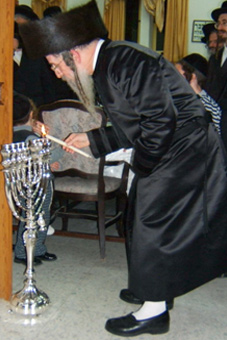




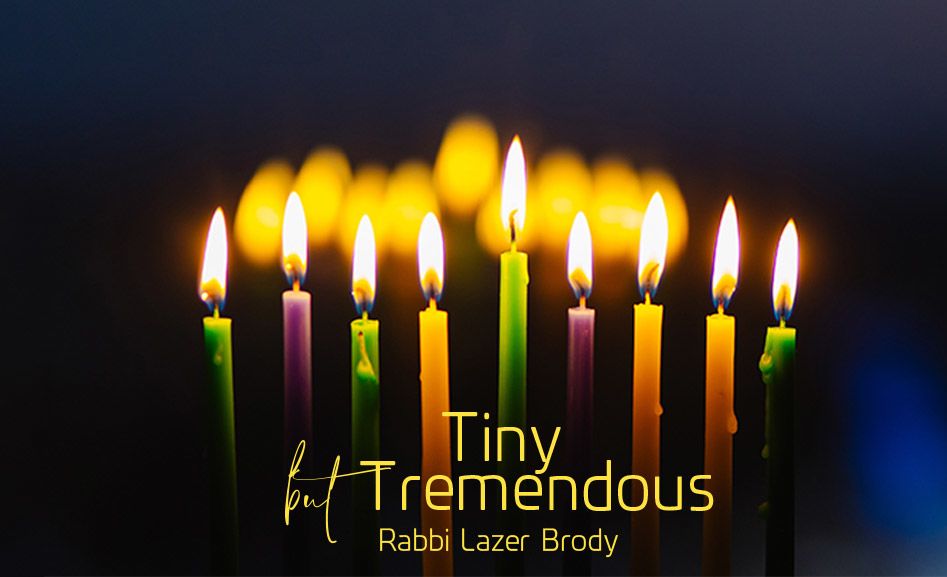
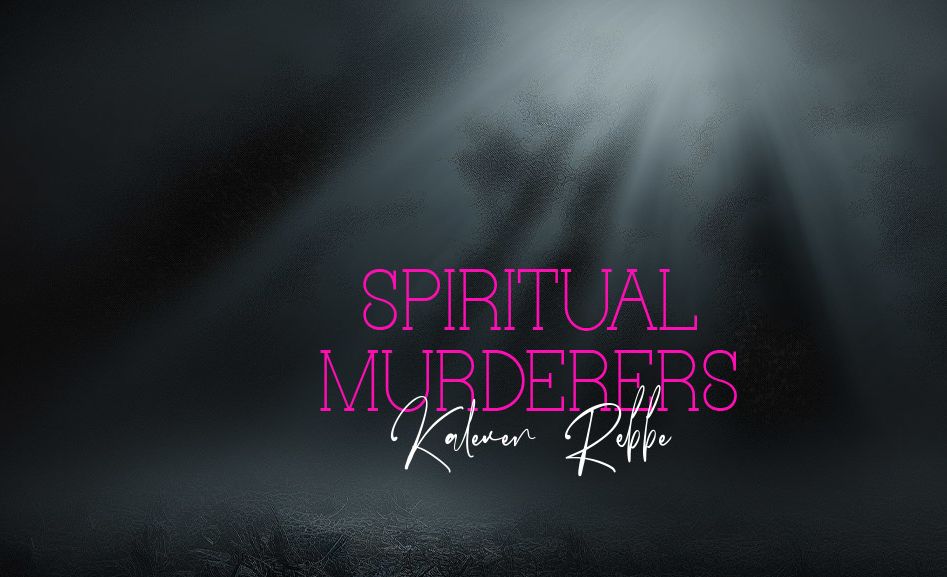

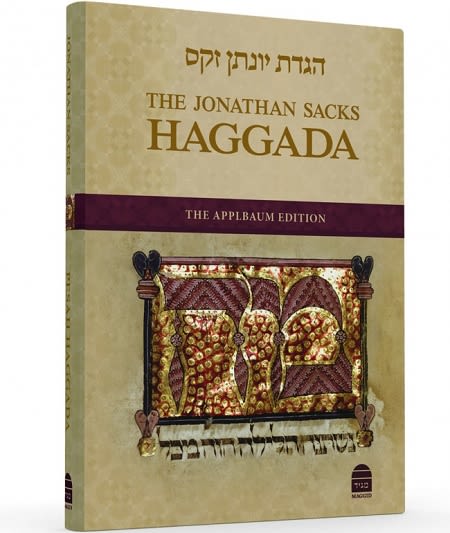

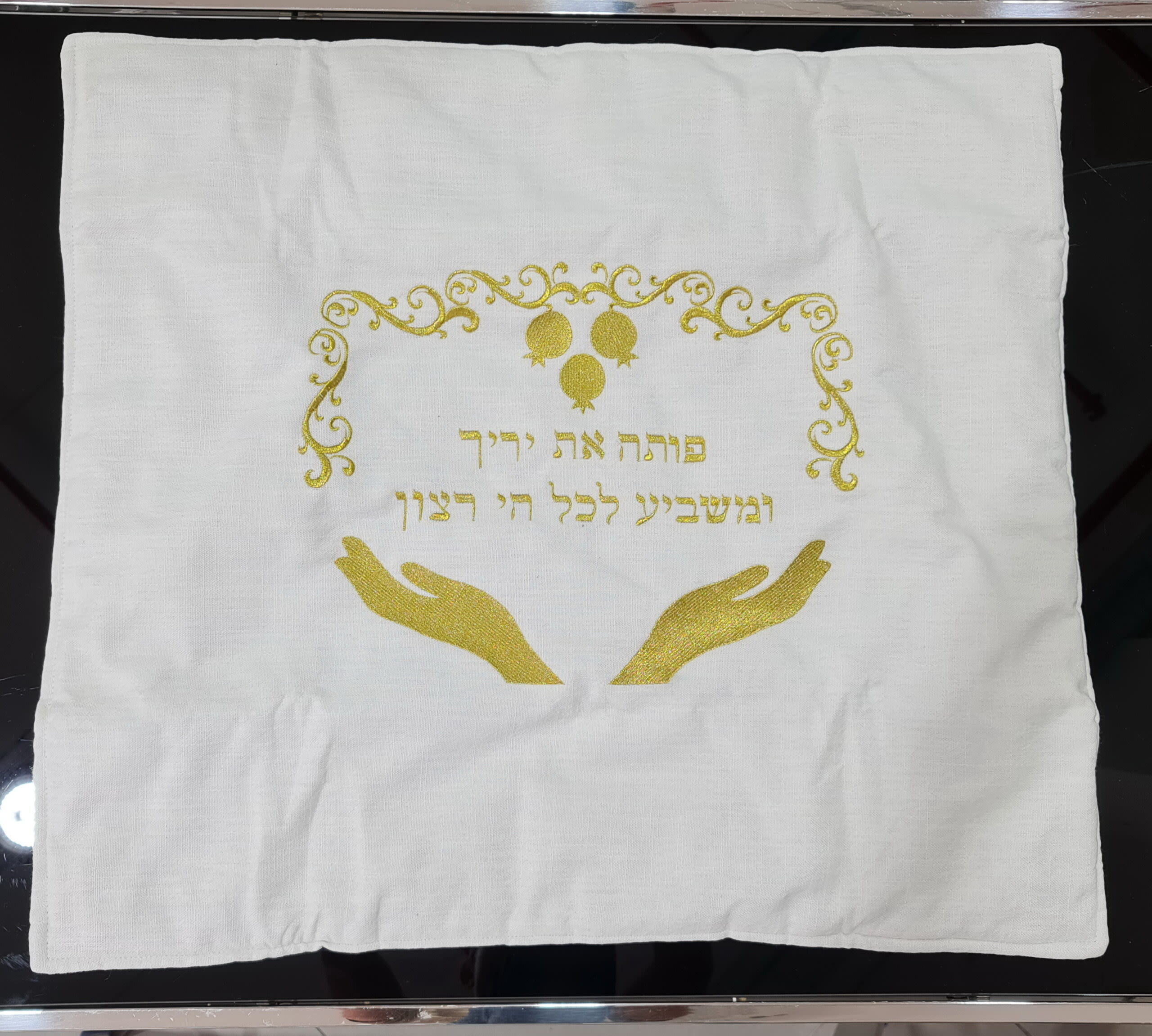

Tell us what you think!
Thank you for your comment!
It will be published after approval by the Editor.